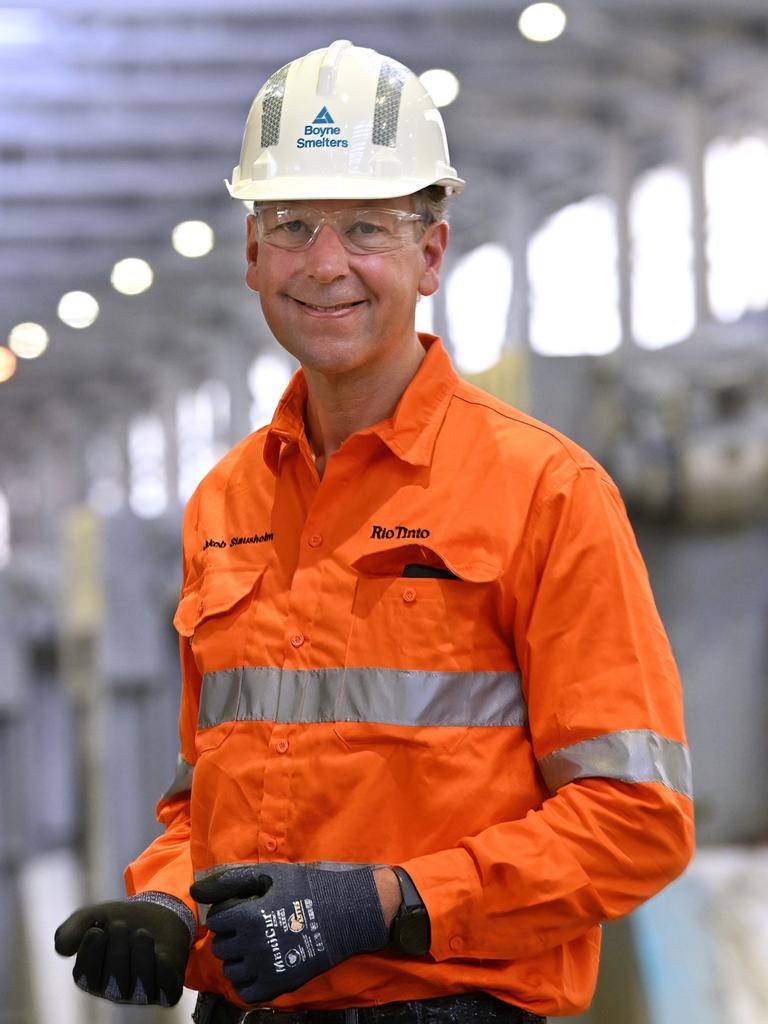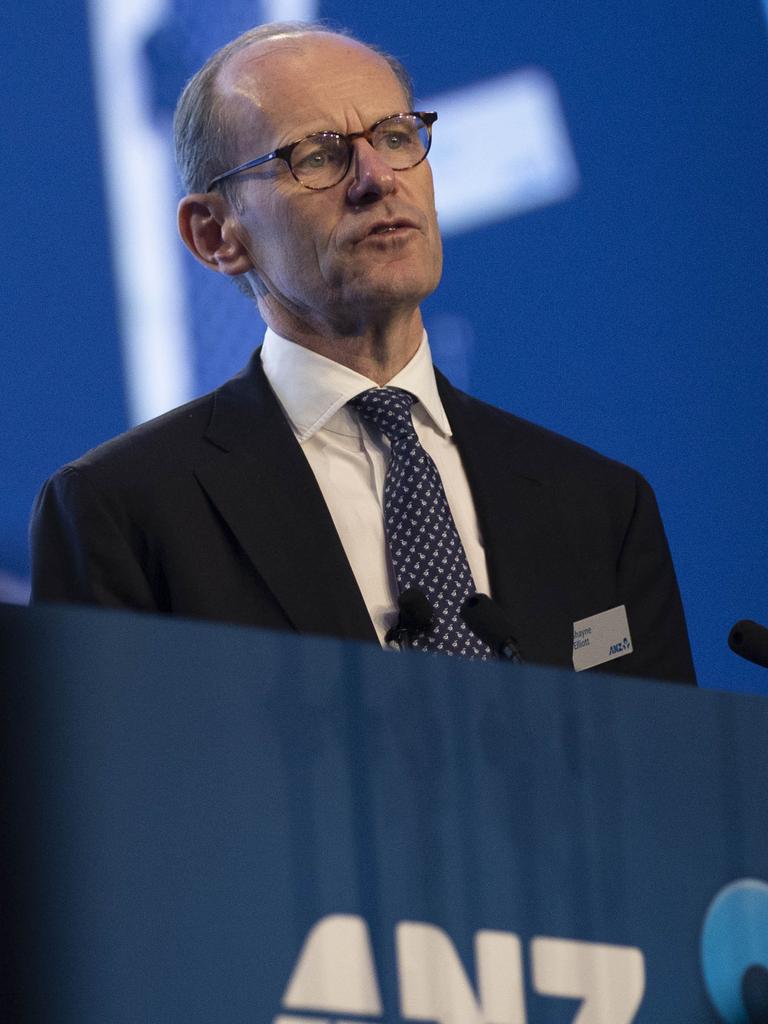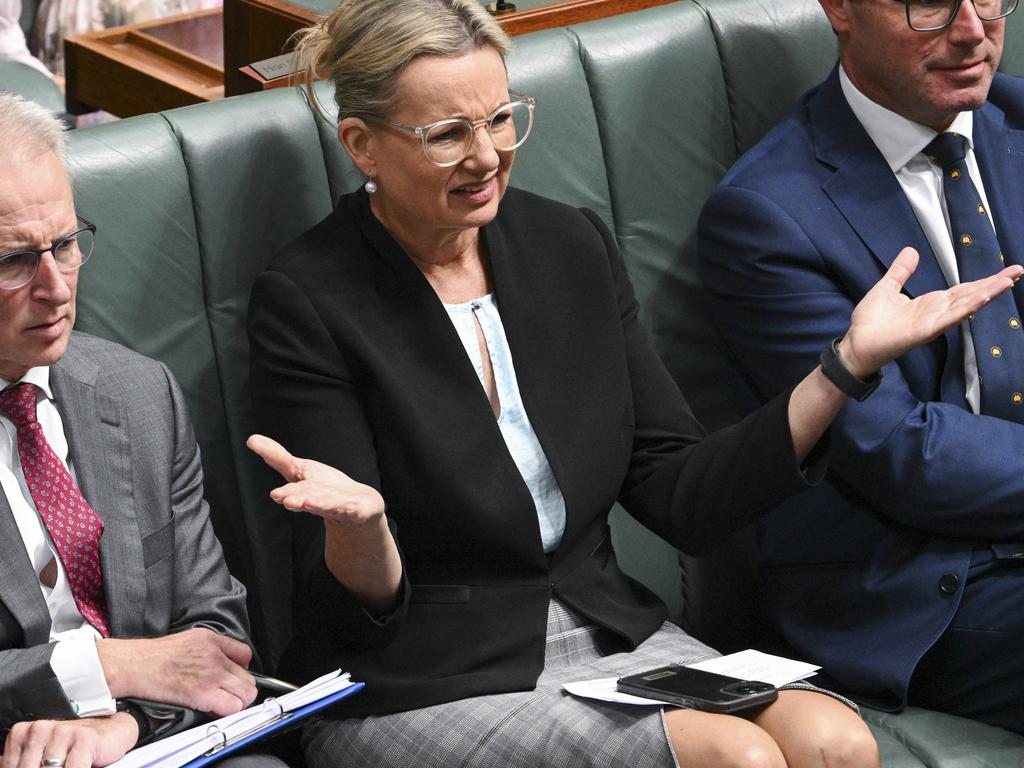Why is there no tough nut left in corporate Australia?


So, tempting as it was to farewell Australia Day villain Brad Banducci off to his family’s village of Gattaiola in Tuscany with shouts of “go woke, go broke” ringing in his ears, that would distract from the profound failures of corporate Australia that require considered analysis.
These failures are not just a tin-eared adherence to elite progressive obsessions such as the voice and the downgrading of Australia Day. Those particular blunders are just a symptom of more significant failures.
Having surrendered to feeling and emotion over rationality, many corporate bosses are failing to properly discharge their economic and commercial duties.
The pursuit of warm, fuzzy, feel-good idealism at the cost of sound economic policy and good sense is well illustrated by all our big corporations jumping on the voice bandwagon before anyone had the slightest clue what the proposal actually was. It is equally reflected by the way boards obsess over environmental, social and governance while apparently spending much less time worrying about profit and loss statements or balance sheets.
However, the most striking example of the way in which our big corporations have been reduced to irrelevant stupidity was seen most recently when BHP chief executive Mike Henry begged the Albanese government to abandon its productivity killing, economically disastrous IR changes.
Henry in effect said he could do without the nickel industry subsidies being considered to save BHP’s nickel operations if the government instead established policy settings that were fit for purpose in the first place.
But Henry was way too late. He can howl at the moon as long and as pathetically as he likes, but he and all his colleagues at BHP and elsewhere in corporate Australia made a fundamental mistake a long time ago from which rescue is now well-nigh impossible.

In their soft-headed, woolly desire to be loved and lionised as progressive, corporate Australia has surrendered to the kind of stakeholder capitalism and ESG fads now being abandoned at pace in the US. Their desire to make common cause with the progressive side of politics in turn led them to mistake the fundamental nature and constituency of the Australian Labor Party.
The way the unions have outplayed a naive and gullible corporate sector when it comes to IR is painful to watch. And the humiliation is by no means over; indeed, it is just starting. We have had early signs with changes to mineral royalties, but future changes to tax laws and regulation of business generally will make our current appalling productivity failures look acceptable.
How did all this happen? A reasonable starting point is to look at the current crop of chief executives. Ask yourself what Banducci of Woolworths, Henry of BHP, Jakob Stausholm of Rio, Shayne Elliott of ANZ, Ross McEwan of National Australia Bank, Jayne Hrdlicka of Virgin and many others have in common.
None of them was born in Australia. This is, in itself, no bad thing. Australia will always be a net importer of both talent and capital. We have long benefited from the global talent pool, and we should strive to continue to do so. But we need to recognise the limits of reliance on roving global talent. These men and (occasionally) women are children of Davos.
Will their background enable them to understand the peculiar history, psyche and aspirations of the ordinary Australian, and the political framework of Australia? If they had grown up with Australian labour practices, would they be so easily fooled by Australian unions or the ALP? Would they have worried less about quotas and ESG than about IR, tax and regulation if they had been born here?

But here’s where the real failure occurs. The answers to those questions should not really matter. If your chief executive is a charismatic Davos man or woman, it shouldn’t matter if he or she spends too much time swanning about at fashionable dinner parties pretending to be Claudine Gay from Harvard if – and here is the big if – the chair and board are doing their job. A well-informed, hard-nosed, politically astute chair and board can rein in and balance an innovative, creative globalist chief executive who has spent too much time channelling George Soros.
The problem in Australia is that many of our boards have themselves become pale imitations of global CEOs. They are too often naive, monoclonal blancmanges with uniformly progressive beliefs and are mostly incapable of telling Henry and co they are being played for fools.
If you doubt me, ask yourself: Where was the clever corporate board that had the courage to say that while we’re all committed to reconciliation and to advancing the lives of our Indigenous peoples, this particular referendum proposal is a bad way to do it and will fail miserably?
Where was the standout big corporation that warned about the ALP’s IR policies before the last election? Is there no tough nut left in Australian corporate life?
In fairness we should recognise that this uniform tealdom is at least partly driven by the fact union-dominated industry funds now usually dictate who gets on to, and stays on, big corporate boards. But a little courage from directors would not go amiss.

Neither should we shy away from the fact that the drive for diversity has resulted in boards having every conceivable form of diversity except the diversity that counts – intellectual diversity.
Quotas of 40 per cent women were supposed to deliver diversity, but a case can be made that the backgrounds, skills and beliefs of female directors are so homogenous that they actually worsen intellectual diversity on boards.
We need a lot more female directors who don’t look, sound and behave like the next teal candidate for parliament – progressive, articulate and affluent women whose waking moments are consumed by ESG.
If the anecdotal evidence pouring into this column about female directors forming voting blocs dedicated to maintaining ideological purity and keeping troglodytes off the board is true, it’s about time our boards deliberately sought out some dissenters. Corporate Australia needs an intellectual shake-up, not gender quotas. The ideological status quo is rotten for the country.
Finally, when diagnosing the problem with a view to working out how to fix it, one can’t go past the disastrous role of the Australian Institute of Company Directors. It plays a big role in cementing into corporate life a monotone production line of look-alike Davos wannabes. The board of the AICD antagonised much of Australia with its support of the voice, and undermined its credibility and effectiveness, but at least it was consistent. A body once simply dedicated to the education of directors and looking after their interests can now be relied on to jump on any idealistic, emotional bandwagon going.
Maybe Banducci was right – it’s time to cash out and head to Tuscany.







Schadenfreude is a seductive emotion but ultimately foolish, not to mention unattractive.